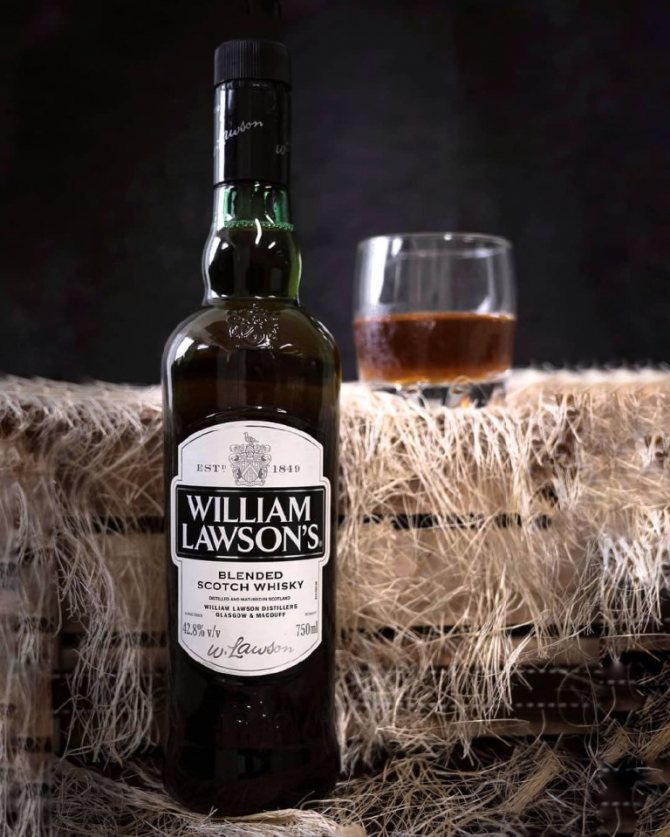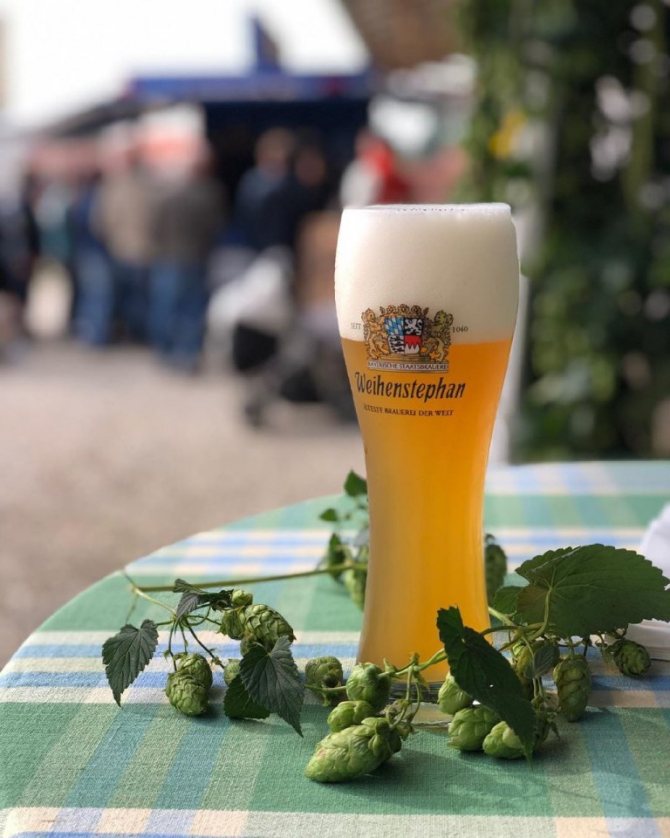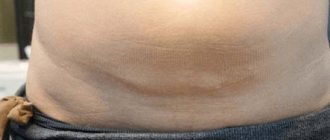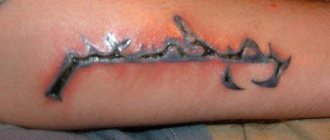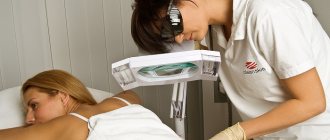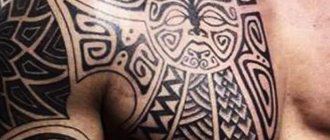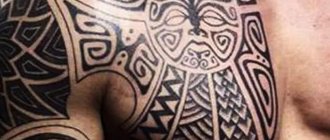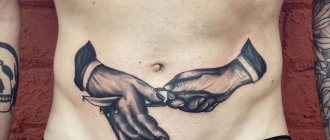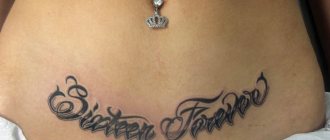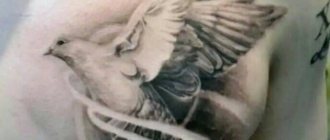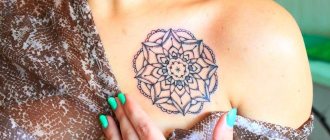
Applying a tattoo is similar to a small surgical intervention. Many people wonder if it is possible to drink alcohol after a tattoo and what rules to follow.
It is necessary to approach the preparation responsibly. Before applying, exclude alcoholic beverages. No self-respecting studio will not do a tattoo to a client who is intoxicated.
Why can't I drink after the session?
By getting rid of the toxic substance, the body also flushes foreign compounds out of the skin. Inflammation may occur at the tattoo site.
Alcohol-containing drinks have different effects:
- Whiskey and cognac dilate blood vessels, the wound bleeds more and takes longer, and heals poorly. Tattoo may become half as pale.
- Vodka increases blood flow, the paint is washed away, the color dulls, the clear borders of the figure are disturbed.
- Beer contributes to a slight increase in blood pressure, affects the amount of lymph produced. What happens if you drink beer after the procedure? The place of healing will be covered with a rough crust, after which scars may remain.
Can I drink alcohol after the tattoo?
The making of this decision is up to the client, but any master will express a negative opinion about it. Ideally it is forbidden to drink alcoholic drinks and alcoholic beverages during the period of healing of the applied image.
The human body perceives the dye pigment as a poison and tries to get rid of its presence by any means. It is for these reasons that an area of skin can take a long time to heal, itch, or become inflamed. Alcohol is a kind of catalyst that increases the speed of blood movement within the blood vessels and promotes the expansion of the latter. Based on this, we can conclude that the use of hot drinks will lead to the fact that the tattoo will take longer to heal, giving the owner certain unpleasant feelings.
How much you can not drink after the tattoo is determined individually. Depending on the area of coverage and individual characteristics, the healing process can last from one week to one month, and sometimes more. Alcohol and tattoos are incompatible, and, wishing to get a high quality image, it is worth refraining from drinking.
Rules before and after tattooing
1 day before the procedure is recommended not to eat heavy food and medications that affect blood clotting. Drink as little coffee as possible, limit the intake of vasoconstrictors. Exclude sports and exercise to keep your skin toned. Elastic skin prevents pigment from getting in and swelling.
If you are ill, postpone the session. Poor health affects your pain threshold. For rapid healing, use "Bepanten" ointment, follow the master's recommendations.
How does alcohol affect the quality of the image?
If the answer to the question, how much you can't drink after the tattoo, has already been found, then how it affects the quality of the result is not quite clear. First of all it is necessary to remember that:
- Alcohol in the blood affects metabolic processes and significantly slows down the regeneration of skin cells. In this case the client can receive as minimum the floated image, and as maximum the scars and scars, which will lead to the inevitable correction.
- After a tattoo session one should not drink alcoholic beverages for the reason that alcohol can wash out the pigment. This happens along with blood and lymph coming to the surface of the skin.
- Getting a tattoo in Moscow from a good master is no free pleasure. Correction or a new job will bring additional expenses. Is it worth it if you can just limit yourself for a few days?
Tattoo care
A huge role in the quality of the artistic work has experience and professionalism of the master, but there is another important factor - the right care for the tattoo! Just correctly done tattoo is not enough. Only he guarantees the preservation in original form of clear lines and brightness of the work.
Neglecting the rules and improper care of the tattoo in the first days leads to the loss of quality of the image, which requires the obligatory correction. One should not forget that a fresh tattoo is a kind of a small wound on the skin, therefore it is very important to follow all recommendations of the master. Proper care guarantees not only the preservation of the tattoo, but most importantly - the safety of your health!
Our studio uses only high quality and hypoallergenic pigments, so hypersensitive reaction to the paint is excluded. For people prone to allergies tattoo will not be a contraindication. However it is necessary to understand that if your skin is too sensitive or there are any skin diseases, it is recommended to consult with the attending physician.
The best innovative tattoo care!
The suprasorb F film is a unique, quick and easy tattoo care for busy and active people! It is the reliable solution due to which you receive the fastest healing and tremendous result, spending a minimum of efforts!
Transparent and weightless suprasorb F film is like a second skin, reliably protecting the body from all known infections. It favors the healing process of the tattoo and makes it comfortable and fast.
Why choose suprasorb F:
- Immediately after the tattoo and the subsequent treatment of the skin, the master imposes a film, which must be worn for three to five days.
- The care of the tattoo requires absolutely no more manipulation. There is no need to change the bandage daily and wash the surface of the skin, which makes it very easy to care for and heal. For working and busy people this is a definite advantage.
- The film is removed independently and very easily - you only need to steam the skin and gently remove it.
- After removing the film, the tattoo should be washed with antibacterial soap and lubricated with cream. It is recommended to apply the healing cream 1-2 times a day until the tattoo is completely healed.
Standard care after tattooing:
- Immediately after finishing the work, the master treats the surface of the skin with a special decontaminating solution.
- Lubricate with cream and apply a bandage with a disposable absorbent diaper. In this case, we recommend using a special cream heile heile tattoo (made in Germany), which includes many special components with a high regeneration effect of the skin.
- The above-mentioned care for the tattoo in the first days should be repeated independently, every 3 - 4 hours, without allowing the formation of "crusts".
- Starting from the 5th day, the tattoo should be washed with mild antibacterial soap and cream 1 - 2 times a day until it is completely healed.
If the tattoo is no longer shiny and flaky it means that it is completely healed and further care is no longer required. During the first week and a half you should avoid steam baths, sauna, solarium, bathing in open water, long stay in the water. You should make adjustments for this period in your closet: avoid direct contact with synthetic and woolen clothing (it is best to give preference to fabrics made of cotton).
Then you can lead the usual way of life, excluding the sun and the solarium for 1 month from the moment of the tattoo.
Take care of your tattoo correctly, because its quality and attractiveness depends on it!
What else is important to know
Often the decision to do a permanent on the face is spontaneous. To avoid dangerous infections and not to waste money, it is necessary to know some additional points:
- Medications. No blood thinners, diuretics or antihypertensive medications should be taken at least two days before the procedure. Specialists recommend taking a course of appropriate medications during the preparatory period to prevent herpes. It is better to determine the right medication with a dermatologist.
- Drinks. Abstain from energy drinks and herbal decoctions several hours before the session.
- Food. On the day of the procedure, abstain from spicy and fatty foods, limit spices.
- Sleep. Sleep well before the seance.
- Critical days. During this period, the risk of bleeding increases. It is better to plan the permanent make-up session in the middle of the cycle.
- Diseases. Diabetes mellitus, blood clotting disorders, skin and ophthalmologic diseases are serious reasons to postpone tattooing. It is also necessary to visit the attending doctor and to consult.
- Hygiene. Do not pluck eyebrows, do not scrub the skin, and do not tan for 14 days before the procedure.
What are the health risks of tattoos
People who have decided to use this kind of body decoration should be aware that a subcutaneous drawing can be fraught with infection. The list of diseases resulting from the performance of the drawing "dirty" or poorly sterilized needles is frightening - syphilis, AIDS, hepatitis of various types, tuberculosis, etc. Therefore, first of all, it is necessary to ensure that the procedure was carried out by a professional, in conditions of hygiene and using sterile instruments.
The ink used in applying tattoos, sometimes contains poisonous substances and carcinogens, which are very harmful to the human body. For example, many tattoo inks contain benzopyrene. Experiments conducted on animals have shown that it causes skin cancer in test subjects.
A tattoo made with black ink is especially dangerous because in addition to the usual henna, paraphenylenediamine is present in its composition. This chemical compound usually causes eczema, dermatitis, complex allergic reactions and other skin lesions if the dosage is not observed.
But colored inks often contain heavy metals such as titanium, lead, cadmium, and nickel. Getting these substances under the skin is extremely undesirable for the integrity of the whole body, because dangerous chemical compounds often cause cancer and other serious diseases, and not only skin.
If you are not a chemist, it will be almost impossible for you to understand the composition of those inks that will be used for drawing. Therefore, you will never be able to be completely sure that, decorating your body, you have not caused irreparable harm to your health.
Rules after a tattoo
After you leave the salon, the responsibility for your tattoo lies only on you. You should not disregard the advice of the master, because, following them, you will protect yourself from complications during the healing process and, at the end of this process, you will get a beautiful, clear and durable tattoo. As the masters say only 50% of the beauty and quality of the tattoo depends on them, the rest depends on your care in the first weeks. Also, don't forget that every time you open your skin, you are vulnerable to scarring and infections. Tattoo care can prevent these complications and ensure your tattoo heals properly. To learn how long it takes for a tattoo to heal, what restrictions are in place after a tattoo, and how to know if a tattoo is not healing properly, read on.
What are the dangers of tattoos for your career?
No one knows how your future life is going to turn out. Perhaps a tattoo from your youth will be the reason for rejection when applying for a high-paying job. After all, most reputable companies watch out for their image and they don't need a director with samples of body painting that attract unnecessary attention.
Think about your reputation in the future. Will you need a tattoo on your neck if you go into politics? And after all, the removal of any of the pictures is impossible without scars and pain. And scars have never brought the owner neither joy nor happiness.
Memo for those who have decided on a tattoo:
- Until the end of life you will have to protect the applied drawing from active sunlight, so as not to provoke the development of skin cancer;
- Tattoos done near mucous membranes are dangerous to your health;
- Choose the place, the least exposed to stretching - ankles, back;
- That a masterpiece of a needle of the master is not bored with time and did not become seem simply ugly, do tattoo on those parts of a body which seldom see;
- In order to avoid pain in the literal sense of the word, find out thoroughly what the picture or hieroglyph you like means.
To summarize, we can conclude that the tattoo is a direct threat to your health, even if all the necessary rules for its application are observed. But each person has the right to choose what and how to do with his body. Just weigh up the pros and cons before making a final decision!
The material was prepared by E.V. Tishkovskaya, doctor of UDD "Grodno University Hospital".
Can I get a tattoo while intoxicated?
Home / Can I get a tattoo while intoxicated?
Some young people planning a visit to a salon to get a tattoo done wonder if it's okay to take alcohol for dare. Those who have already undergone such an ordeal often state "I drank before getting a tattoo and everything went well". But is it really so, and what consequences can expect a person who has decided to have a drawing on his body while he is drunk?
Specialists recommend not to drink alcohol not only before the procedure, but also afterwards. Alcohol can cause very unpleasant consequences. When drinking strong drinks, there is a dilation of blood vessels, which provokes the "pushing out" of the paint during the tattooing. This is due to the rapid circulation of blood in the body under the influence of alcohol.
The higher the concentration of alcohol, the more likely the unsuccessful drawing. You should not take and low-alcohol products, because these drinks also provoke certain changes in the body of the person drinking. After taking alcohol, there is an increase in blood pressure, which causes particular difficulties in carrying out the procedure. Being in a state of alcohol intoxication, you should not count on a successful result.
Negative consequences also await the person who decides to drink alcohol after the drawing. Experts advise to refrain from drinking for 2-3 days after the procedure. Failure to observe this rule may provoke an unexpected effect. Most likely, an inflammatory process will begin in the place of application. Also, distortion of the applied image is not excluded, which will visually worsen the result. Many people who take alcohol before or after the application procedure, in a short time again go to the master to re-point the unsuccessful drawing. Do you want such results?
A person who does not know how to control their own desire for drink suffers from addiction. In such a situation, the relevant solution would be alcoholism treatment. After a course of medication, it is recommended that you see a psychologist to help you recover and adapt to a sober life.
Tattoos should not be applied while under the influence of drugs. Go to drug addiction treatment You can go through drug addiction treatment in a specialized dispensary where effective therapeutic assistance for people addicted to drugs and alcohol is practiced.
After medical recovery, apply to rehabilitation center !
Date of publication: 18.04.2017
Last modified: 05.11.2021
Author
Dobroskokov Andrey Anatolievich
Psychiatrist - drug therapist
21 years old
Preparing for drawing
The peculiarity of tattoos is their durability. The drawing will adorn the human body for a lifetime, so it is required to choose it responsibly. The tattoo may reflect character or temperament, as well as other individual traits. Sometimes the drawing serves as a kind of motto, showing the general attitude of a particular person to life, his worldview and mood. That is why it is impossible to let the tattoo turn out to be of poor quality.
Professionalism of the master plays a significant role in accordance with the final result to the initial sketch, however, this is not the only condition for success. It is equally important to properly prepare for the procedure. The rules are quite simple. They necessarily will be announced by tattooist at the preliminary meeting with the client. For instance, a few days before the procedure it is better to stop drinking alcohol.
Giving up alcohol is the best solution for those who are ready to decorate their body with a tattoo.
This measure is designed to provide the best result and relatively fast healing. The picture will be clear, bright, and the pigment will be evenly distributed within the epidermis. It is usually forbidden to drink beverages with a degree 3-4 days before the procedure. This time is necessary for the final elimination of the ethyl alcohol present in the bloodstream and tissues.
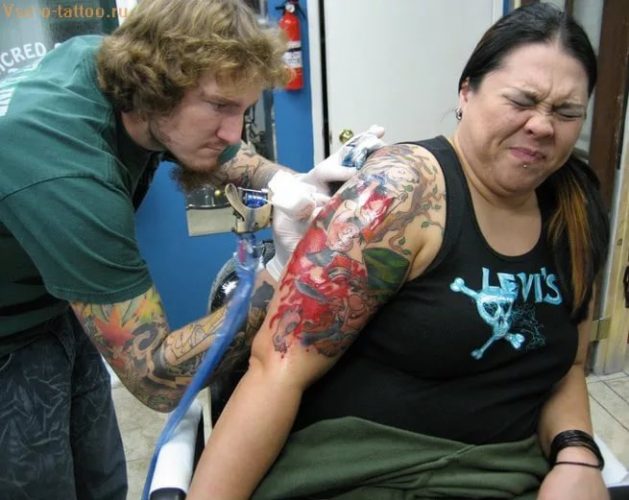

Important: Of course, the responsibility for drinking alcohol rests with the client. It is up to him to decide, if he will take alcohol or refrain from it for a certain period, but the masters strongly recommend to come to the salon only when he is sober. Only in this state people are able to make conscious decisions, which they will not regret in the future.
The preparation for the process of tattooing is not limited to refusal of alcohol. It is important to buy in advance the means that will be needed in the recovery period. Usually these are ointments, accelerating the healing process, as well as plaster with perforation, necessary to protect the skin in the puncture area from the external environment.
A person's general attitude also plays a role. Experienced masters warn that the process of drawing is almost always accompanied by painful sensations, the intensity of which depends both on the specific location of the tattoo, and on the individual threshold of sensitivity.
Large drawings are not done in one session, the process will be divided into equal parts. If the client fears uncomfortable sensations, it is best to use an anesthetic. For example, when applying permanent makeup, topical creams that work on the principle of freezing are often used. It is not allowed to drink alcohol in order to dull the pain.
How to prepare for the permanent make-up
Before you do the tattoo on the face, you should choose a reliable salon and get the recommendations of the masters on the preparation of the procedure. The qualified specialist will clarify if you have any medical contraindications, and insist on the observance of preparatory rules.
Some body reactions to various irritants can lead to clotting disorders, which will complicate the work of the master, minimize the result and cause complications after the procedure. Preparations for tattooing should start a week in advance.



